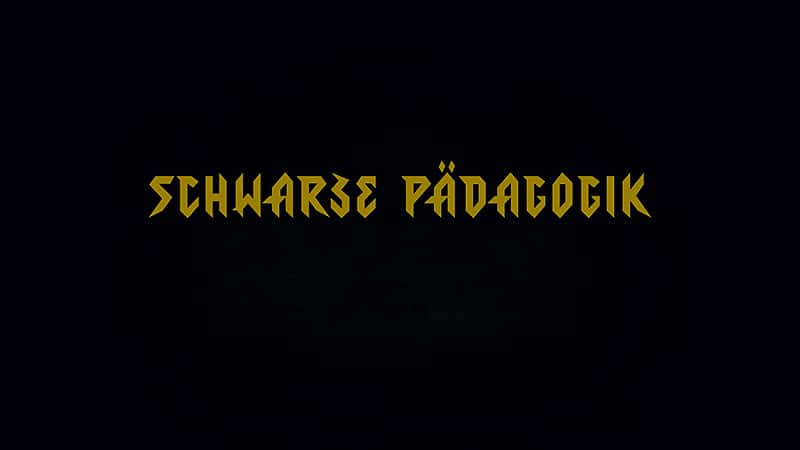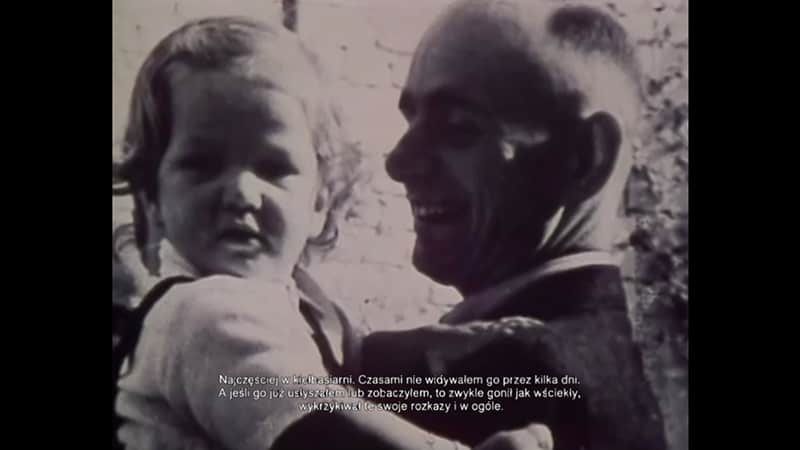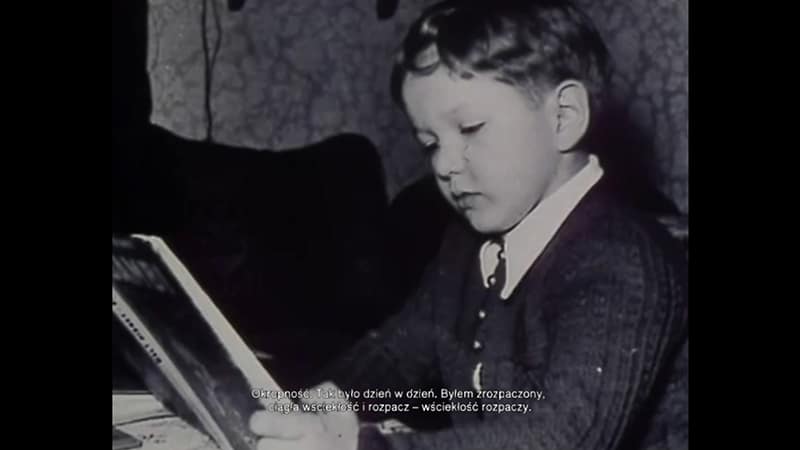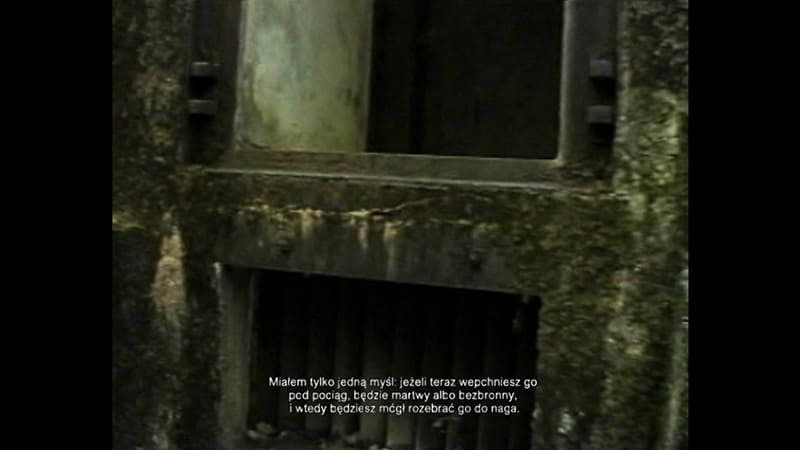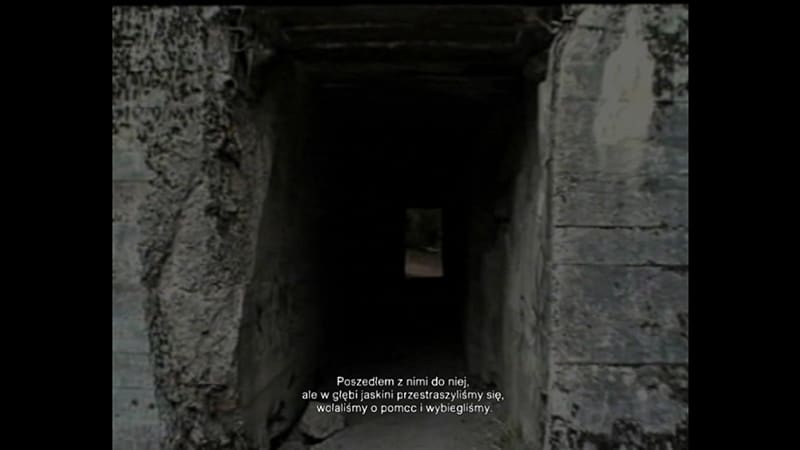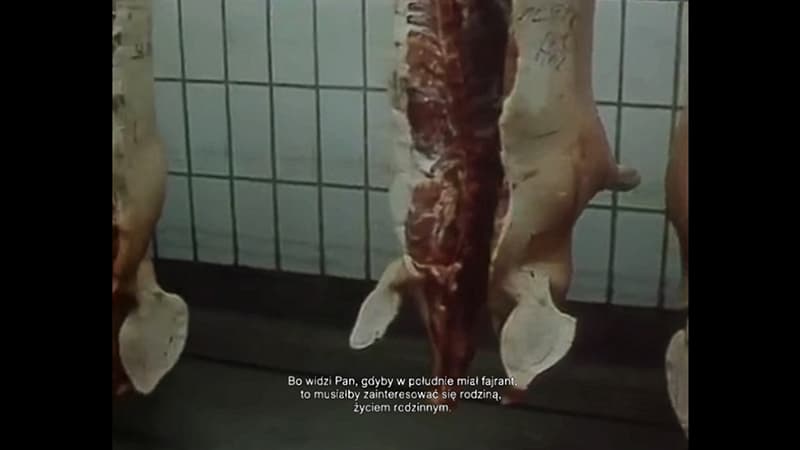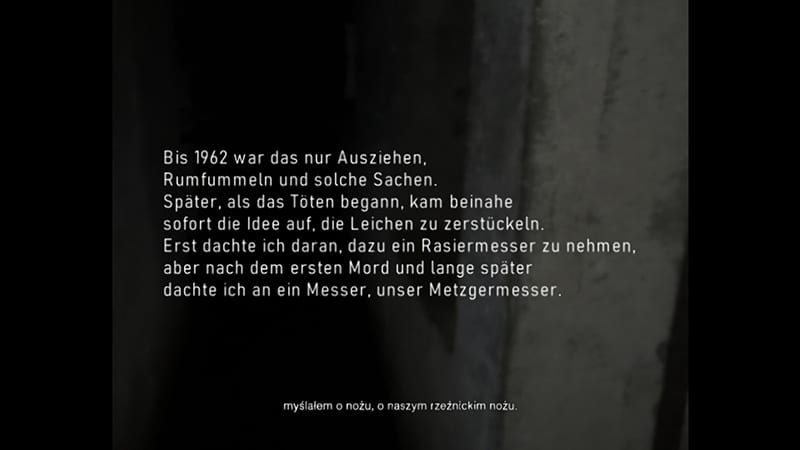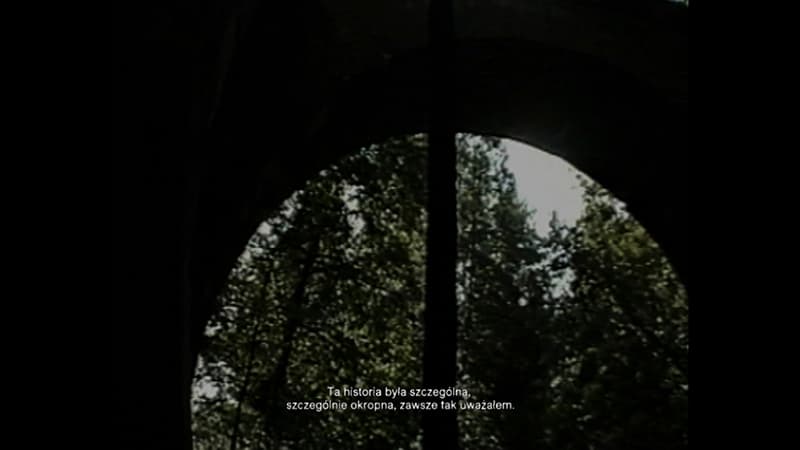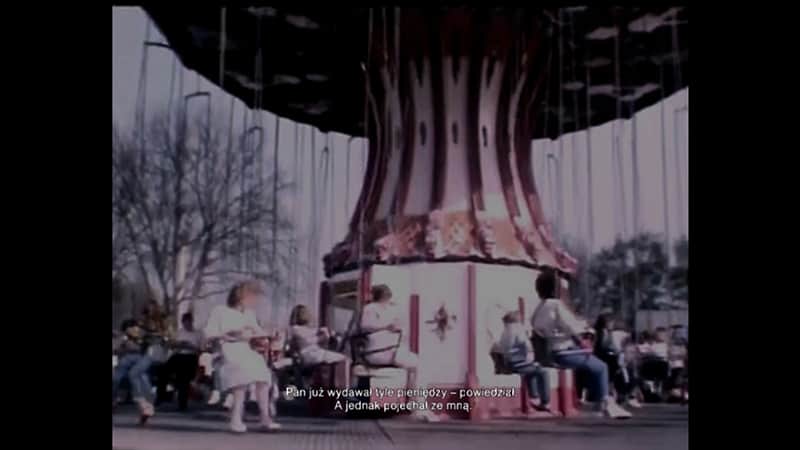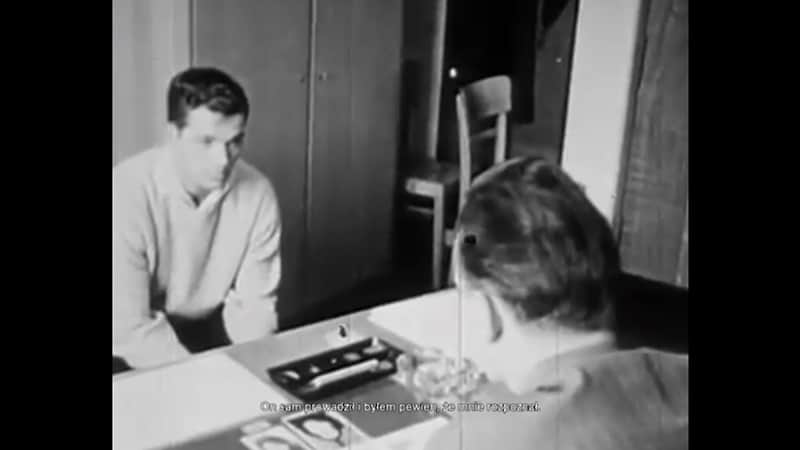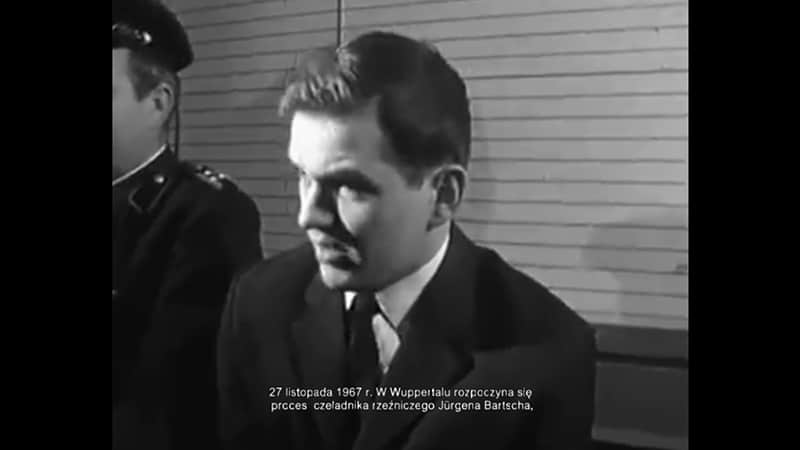Schwarze Pädagogik/Black Pedagogy
| title: | Schwarze Pädagogik/Black Pedagogy |
| year: | 2020 |
| dimensions: | time: 37'51 min |
| technique: | color film in German translated into Polish |
| editing | Dariusz Sitek |
| music | Michał Jacaszek |
| description: |
Compassion and tolerance are not acquired through intellectual knowledge. If we are unable to let our awareness of the fact that we were treated in childhood with contempt, if we do not live it and think it over, we pass on this contemptuous treatment.
The trend related to the concept of Black Pedagogy was initiated by the Swiss psychoanalyst of Polish origin, Alice Miller in 1980, with the publication of her study on the psychological abuse that the respondents experienced in their early childhood and then, unaware of this fact, applied to their own children. The research has clearly revealed the phenomenon of inheriting discriminatory attitudes. Since then, research on the negative impact of some educational theories and practices that perpetuate the forms and mechanisms of repressing children has become common.
At the turn of the 1960s and 1970s in West Germany, a sensational trial of the sex offender Jürgen Bartsch took place. From the age of 15 to 20, he committed indescribably cruel murders on children. This extreme example, analyzed by sociologists and psychiatrists, revealed how the inherited, pathological patterns of German decency, upbringing / discipline and the system of power made it possible for most Germans not only to accept the policies of Hitler and the Third Reich, but also to uncritically adapt to it for many years.
It might seem that the "Third Reich" was not Jürgen Bartsch's experience, but his biography reveals that perversely National Socialism, discipline and an authoritarian education taken to the extreme marked his childhood and youth. Born in 1946 as the illegitimate son of a war widow suffering from tuberculosis and a seasonal worker, Karl-Heinz Sadrozinski - later Jürgen Bartsch, was left in a hospital in the maternity ward for a year, where he was found by the childless elderly Bartsch couple and decided to adopt. The child was not supposed to find out about his adoption, for this purpose contacts with peers or teenagers were strictly forbidden by the parents, which left the boy completely defenseless against the domestic and institutional regime. In the course of his education and upbringing, he experienced extreme violence, rapes against the people around him. During the trial, when the details of the case became public, they caused a wave of indignation, terror and despair. It was also astounded how such cruelty was even possible, in a young man who seemed sympathetic, intelligent, sensitive and showed no signs of a cruel criminal. After all, he grew up in a decent bourgeois home, under "loving care".
In the monologue, a conversation between Jurgen Bartsch and Wilifried Rasch, which is the basis of the film, a mechanism was recorded that made upbringing one series of persecution.
We are dependent on individual individuals (not only on institutions) who can easily take over the masses of people, if they represent an educational system shared with these masses. People who have been pedagogically manipulated as children, as adults do not even feel what can be done with them.
|
© Dorota Nieznalska 2009-2023 | privacy policy
website implementation: Brandrei.com
